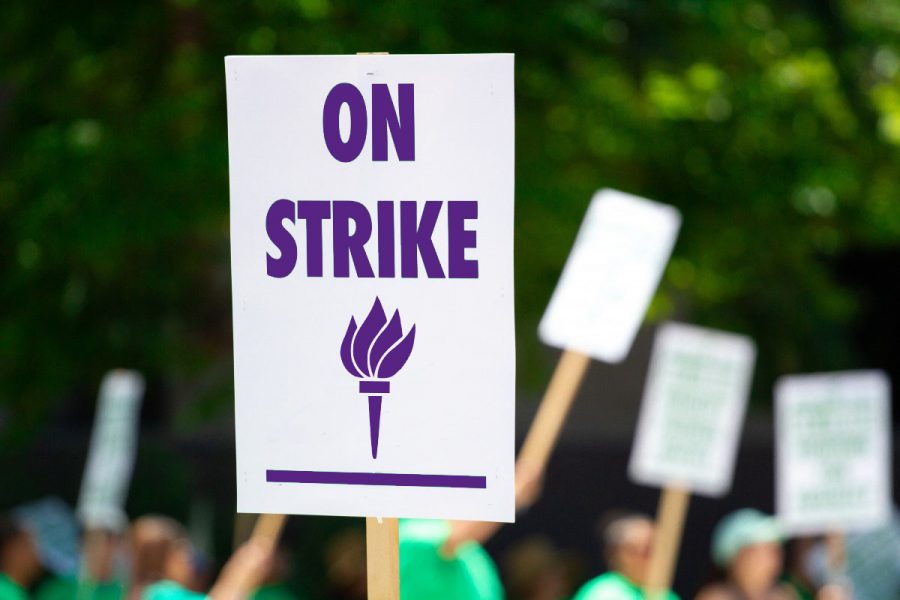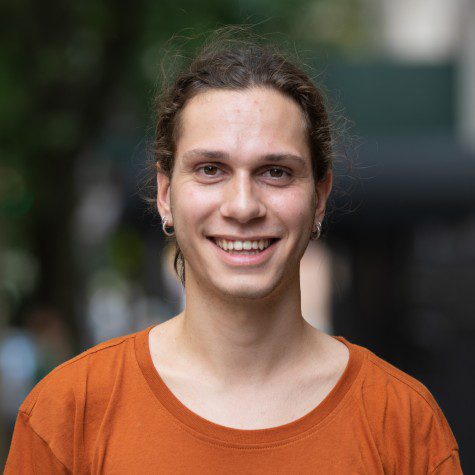The nationwide Scholar Strike begins today at 10 a.m. and runs through tomorrow. For two full days, participating professors at campuses across the United States will walk out from their normal academic and administrative duties and instead stage teach-ins on racism, police brutality, mass incarceration, anti-racism and cultural proficiency. By time of publication, WSN identified at least two NYU professors who are participating.
Dr. Anthea Butler, an associate professor of religious studies and Africana studies at the University of Pennsylvania, sparked Scholar Strike with a single Tweet: “I would be down as a professor to follow the NBA and strike for a few days to protest police violence in America,” she wrote on Aug. 26. Quickly she had a co-organizer: Kevin Gannon, a history professor at Grand View University. Within days they’d created Scholar Strike Facebook and Twitter accounts, as well as a hashtag and a website.
“While there have been lots of actions across the country at colleges and universities about racial justice, black lives matter [sic] and police reform and abolition, this is the first time we’ve all come together for two days to focus on this together as professors, students, staff and administrators,” Butler told WSN via email. “We hope this is the beginning of concerted action, teaching and advocacy to help BIPOC receive justice and equity.”
On Friday, Sept. 4, Jack H. Knott, the dean of Steinhardt, sent an email to the Steinhardt community stating that “I want to recognize those members of our community who may choose to participate in the upcoming #ScholarStrike, which calls for a disruption of our normal work routines and a virtual, public teach-in on police violence and racism.”
Some professors participating in Scholar Strike might reschedule classes or meetings, Knott said; others might use scheduled classes and meetings to discuss systemic racism; or they might alter their schedules “to allow for time to engage in collective action, to learn, and to listen.” Whatever the case, Knott promised to support those participating in the strike and urged the school’s department and unit heads to be “flexible and supportive” of striking faculty, students and staff.
Like Steinhardt, the university offered up resources — specifically the Office of Global Inclusion’s “Anti-Racism Education Resources programming.” In an email to WSN regarding the Scholar Strike, NYU’s senior director of executive communications Shonna Keogan said, “NYU as an institution strongly encourages its students, faculty, and employees to continue to engage in reflection and peaceful anti-racism actions.”
On Twitter, NYU Silver “encouraged all faculty to refrain from teaching” and administrative duties on Sept. 8 and 9. Laura Morrison, associate director of communications at NYU Silver School, shared statements with WSN, sent to Silver faculty and students. The statements encourage faculty to support and participate in the strike.
Inside Higher Ed reported that around 600 professors had committed to striking on Aug. 28. On Sept. 6, Forbes reported that over 4,900 people had signed up. Yesterday, Butler told WSN that more than 5,000 people have signed up and expressed interest in participating. Additionally, Forbes reported that the American Academy of Religion called its over 8,000 scholars to support the strike and that the American Sociological Association issued a solidarity statement to its more than 13,000 academic members. For the strike, the ASA gathered and developed resources on race, justice and police violence.
For the past few days, professors have been sharing Scholar Strike teach-in ideas, plans and resources on Facebook and Twitter; Scholar Strike social media accounts have been reposting and retweeting. Butler and Gannon co-wrote on the Academe Blog that Scholar Strike teach-ins will be 10 minutes long and located on YouTube. Other participants, at various universities, will be engaging students with their own programming. On Sept. 8 and 9, Scholar Strike accounts will “blitz” Facebook, Twitter and Instagram with information about various aspects of racial injustice in the U.S., such as mass incarceration and policing.
Dr. Ahmed Ansari, an Industry Assistant Professor at the Tandon School of Engineering, will be staging a teach-in on “white supremacy and racism vis-a-vis design.” Dr. Susannah Levi, an Associate Professor at Steinhardt’s Department of Communicative Sciences and Disorders, shared her Scholar Strike plans with WSN via email.
“The classes that I am teaching this fall are both about speech and language,” Levi prefaced. “People have very strong opinions about language in general, but there are also many examples of linguistic biases and linguistic profiling that are harmful for speakers of dialects that are considered less prestigious, which includes speakers of African American Language.”
For Scholar Strike, Levi wrote, “For both of my classes I decided to have students read several articles on what counts as ‘standard’ English… and then they can complete an optional reflection paper. Although my regular class time is cancelled, I’m still holding office hours so that students who want to talk about the articles can meet with me.”
Nicky Nenkov, chairperson of NYU’s Student Government Assembly, told WSN that the SGA Executive Committee was unaware of a centralized schoolwide plan to participate in Scholar Strike, but will be putting out education resources by Wednesday.
“We highly support the strike and applaud every member of the community who decides to participate,” Nenkov said. “We urge school and department leaders to be supportive of students, faculty, and staff who participate, both by being accommodating and by providing them with resources to further the conversation.”
Teaching assistants, grad students, administrators and staff — as well as professors — are encouraged by organizers to participate in the strike; however, university employees with no-strike union clauses are advised to “teach to the clock” (avoid uncompensated labor) for fear of retribution by the university administration for striking. NYU’s graduate student union, GSOC, did not respond to requests for comment.
Butler told Inside Higher Ed “she did not discount the concerns of untenured colleagues, as she remembers well what it was once like to be a Black woman working without tenure,” adding “even tenure at Penn can’t protect her from the everyday potential threat of being stopped by police for, say, sitting at a bus stop while Black.”
“I appreciate that you’re afraid, but some of us don’t have the luxury of being able to hide,” Butler added. “Your privilege is your protection.”
Levi also emphasized the persistence of bias and the need to constantly combat it, “Policing people’s speech seems to be one of the last ‘acceptable’ forms of bias,” she said. “I’m hoping that by talking about linguistic biases early in the semester, that it will allow students to bring that perspective into everything we talk about moving forward.”
Correction, Sept. 8: This article was updated to include the mention of Laura Morrison’s statement as well as links to the messages sent from NYU Silver School to the students and faculty, encouraging them to support the strike.
A version of this article appeared in the Tuesday, Sept. 8, 2020, e-print edition. Email Trace Miller at [email protected].
























































































































































